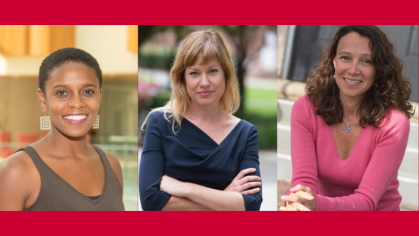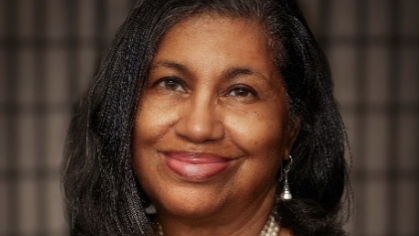We recently had the opportunity to speak with Elizabeth Salerno, Training Coordinator at our Institute for Families (IFF), about LGBT History Month. She shares her journey to a career in social work and what this month means to her.
Tell us a bit about your journey to social work.
Being a member of the LGBTQ+ community led me to become a social worker. I was very young when the AIDS epidemic began, and I remember hearing the news reports about it at the time. At some point, I heard the term “gay plague” and it really scared me because I knew that the term “gay” applied to me (that was the umbrella term at the time for anyone with same-sex attractions). Many people questioned me about how I knew that I was queer at such a young age, but I knew, and I was terrified that I was going to die from AIDS just by being queer. The news reports villainized and shamed the community and as I matured, I started to recognize that the treatment our community endured was unfair and I wanted to be a part of a profession that would take social justice seriously and place advocacy work for minorities front and center. Here I am now, with twenty years as a social worker under my belt, and I am very proud of that.
What is the significance of this month to you?
Many people forget that October is LGBTQ+ History Month since the Pride parades typically occur during the summer and gain so much attention. This month is significant because there is so much about this community that people do not know. Minority groups have their histories hidden, in very brutal and purposeful ways, and this has a disastrous impact on the group. History months are meant to uncover those hidden histories and bring the many contributions of the group into the open. The contributions work to counteract the negative stereotypes and dispel the stigmas that have been assigned to the group. These contributions, these histories, can work to change the way a society views the community and the way the community views themselves. In short, community visibility saves lives.
What are some ways people can commemorate LGBT History Month?
To commemorate something is to recall, respect or celebrate it. My hope is that these things can be done regularly for the LGBTQ+ community, not just within the month of October each year. One of the BEST ways is to celebrate the LGBTQ+ people in your life. My friend Britt does this every year by posting a picture of my wife and I being married on October 21, 2013 by then Mayor of Newark Corey Booker. He writes that he is proud of me for being able to progress from being fearful and ashamed about my queerness to fully owning it by being publicly married when same-sex marriage was almost legal in NJ. What Britt does each year is true commemoration in my eyes, and what this means to me is beyond what my words can express. Largely, it was his initial support and love that helped me to come out to other friends and later, my family.
What can the social work profession or social workers do to bring awareness to LGBT history beyond this month?
The first step would be to become acquainted with LGBTQ+ history. This is a prerequisite to bringing it to life for others. As was stated above, LGBTQ+ history has been hidden; it is not included in standard American education. Many social workers integrate the stories of LGBTQ+ trailblazers into their work with clients as an empowerment tool. I recently heard a clinical social worker reflect on their use of the life of the musician Billy Tipton in their work with a client. This clinician used Tipton, a person whose sex was assigned female at birth and lived their life as a man, to assure this client that queer people have always existed and that they are not alone in their journey toward discovering and living in their truest way.
Another particularly helpful way that the profession can keep the history of the community alive is by being aware of how state and federal laws have evolved to better support LGBTQ+ people. Simply letting a transgender client know that they no longer need to publish their name change in a newspaper in NJ shows progress and highlights the community’s history. Acknowledging and celebrating those new rights and progress towards equality with your clients shows your true interest in their well-being and gives them the support and foundation they will need to become their true self.
This story was created in partnership with Rutgers School of Social Work's Inclusion, Intersectionality, Diversity, Equity, and Advancement (IIDEA) Committee in support of our commitment to diversity, equity, and inclusion.



